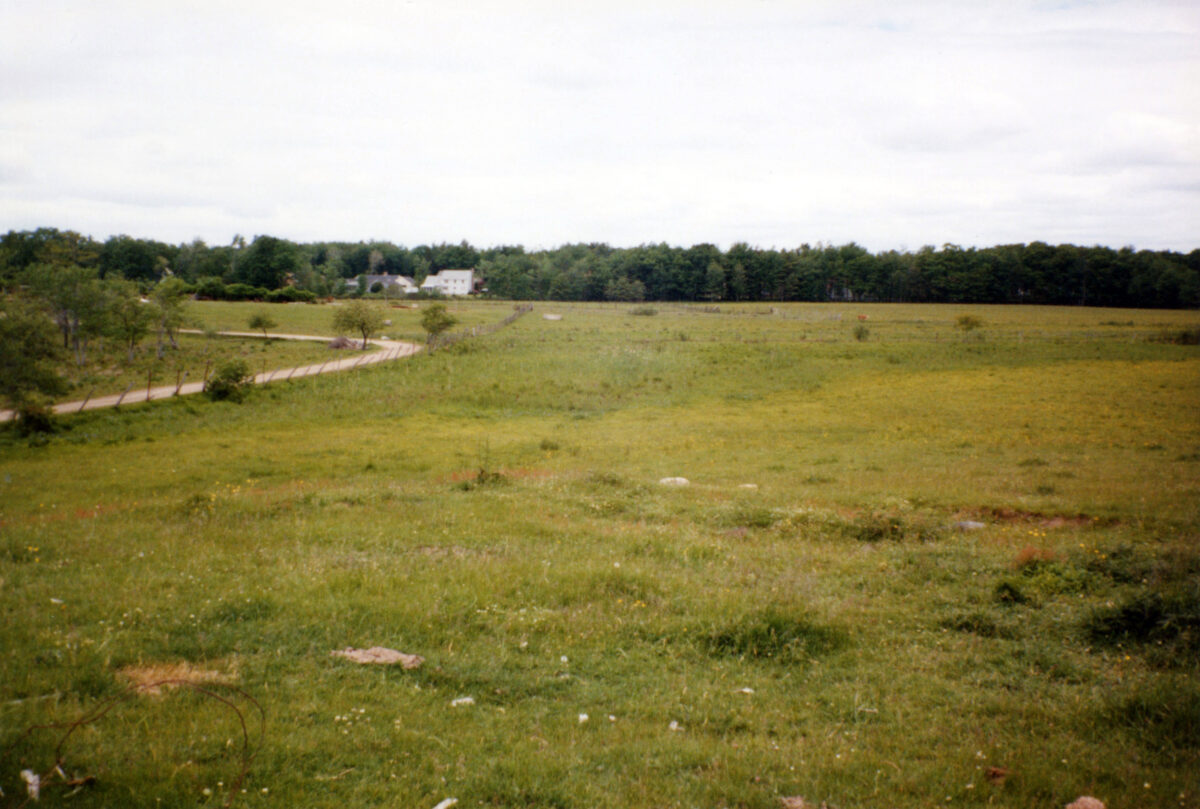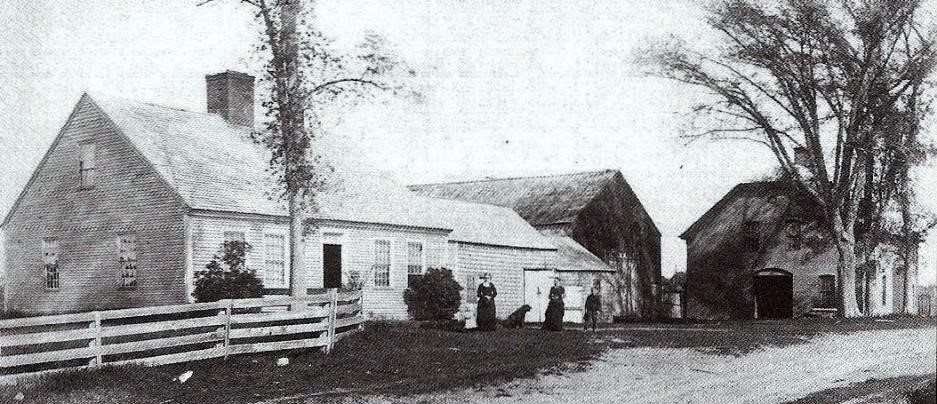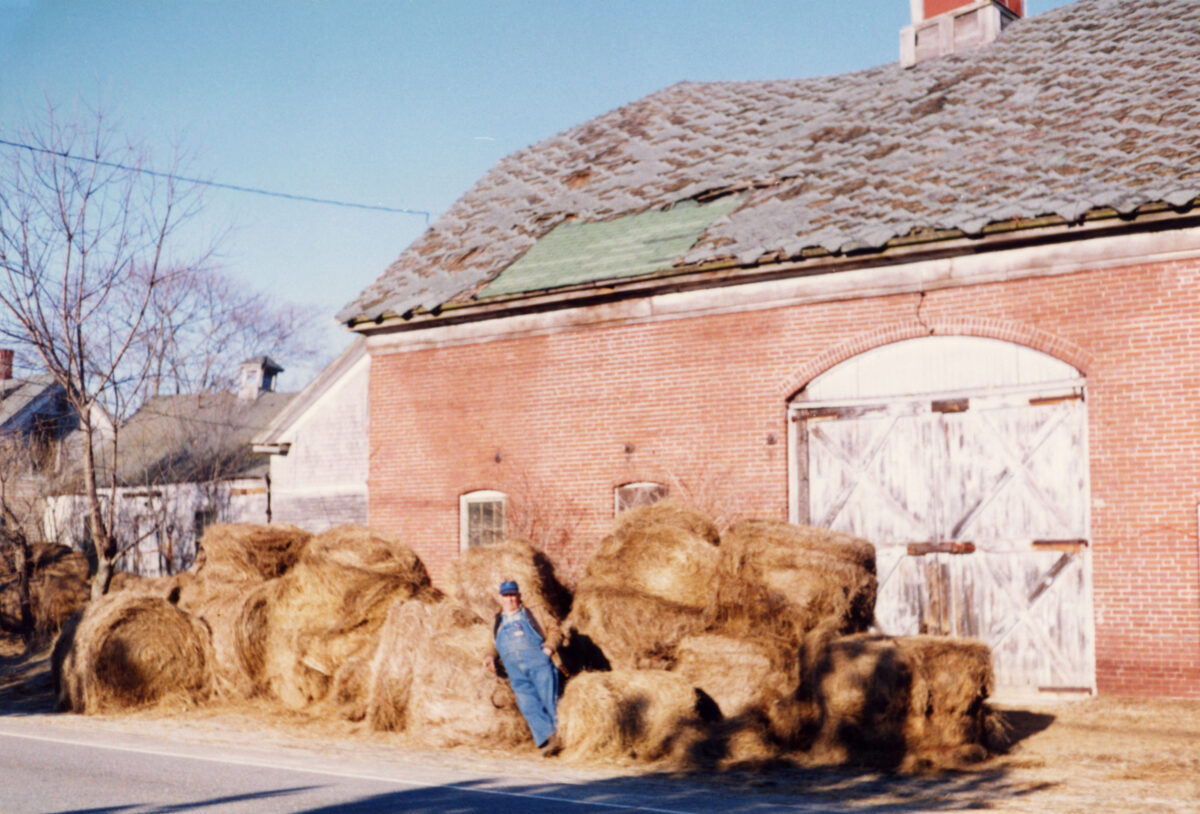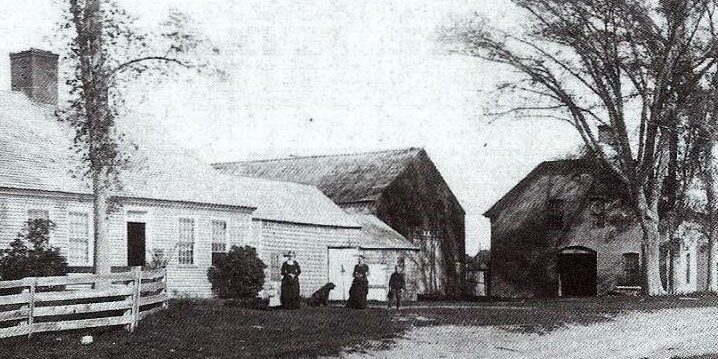Did you know the town of Scarborough had a trolley?
Find out more below!
In September, SLT hosted a History Walk at Pleasant Hill Preserve in collaboration with the Scarborough History Society. Rodney Laughton (past President of Scarborough Historical Society) led the walk. Rodney is a Scarborough native who for over 40 years has collected, studied, and documented Scarborough history. He is also the author of two books, Images of America: Scarborough and Scarborough in the Twentieth Century.

Pleasant Hill Preserve has a long farming history. This is what the property looked like under the care of Jerrerd Benjamin.
In the 1800’s people in Scarborough lived in a landscape dominated by farming. The most popular crop harvested was cabbage. People may have travelled within a 10 mile radius from their farms. For example, a person from Scarborough may have gone as far north as Portland and as far south as Biddeford, but in general there was no reason to stray away from farmland.
There was an obvious shift in the 1930’s when railroads formed a web of connectivity across the nation. Midwestern crops were exported into eastern territories, discouraging farmers from producing local crops.
During this shift, people found new ways to make a living. Pleasant Hill had a water source on the property which was called “Never Failing Spring”. This water was said to heal ailments therefore people wanted to purchase it. The owners of the property bottled and sold the water.

The Robinsons are the original owners of the farm that used to be Pleasant Hill Preserve.
The center of Scarborough was where Black Point Road meets Fogg Road. The area consisted of a Post Office, churches, shops, and there was even a trolley! The trolley did not last very long (1900 to 1931) because cars became so popular, no one needed to ride it.
With the new ease of travel, tourism began to increase along the coast of Maine. At one point there were 7 lodging establishments on Prouts Neck. Eventually the Black Point Inn was the only operating hotel because they had plumbing.
Early tourists that travelled to the area were called “rusticators” and spent summers along the coast. They were warmly welcomed because they promoted business in town and created jobs for locals.

Jerrerd Benjamin standing with hay bales. SLT purchased Pleasant Hill property from the Benjamin family in 2014.
These are some of the events that shaped Scarborough into what it is today. The marsh and lack of fresh water sources are largely the reasons why there is still property in Scarborough that can be conserved. The town has transformed from a farming community to what most of Southern Maine is today- a hot spot for tourism and development. To allow for balanced growth and sustainable building, land conservation is critical.
Read more about farming at Pleasant Hill
Interested in Scarborough history? Head over to the Scarborough Historical Society off of Route 1!
Open
Tuesday: 9am – Noon
2nd Saturday of month: 9am – Noon


